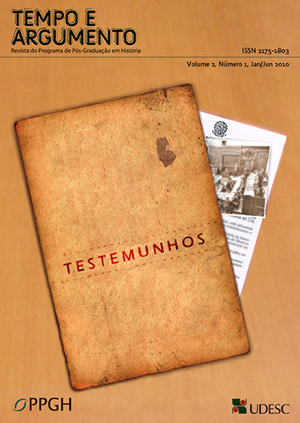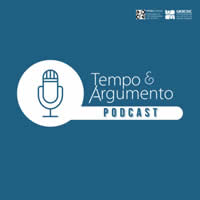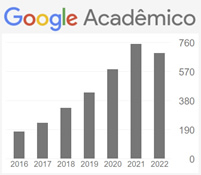Interrogações sobre o valor da palavra: violência e narração
Palavras-chave:
violência, narrativa, trauma, memóriaResumo
O artigo ocupa-se da palavra dos perpetradores pois o interés é analisar a evocação da violencia do punto de vista de quem cometeu actos atroces. Nesse sentido, o propósito é refletir sobre os problemas éticos e teóricos que manifestan-se na tarefa da pesquisa na hora de interpretar a memória dos perpetradores em “primeira pessoa”, assim como as dificuldades que poden-se apresentar no espaço da fala e nas condições da escuta quando esses relatos acontecem. Como taes narrativas excedem os conceitos e categorias teóricas a nossa disposição, o desafio é construir um marco para o análise esses discursos. Tambén o artigo propõe-se a refletir sobre a posição subjetiva dos pesquisadores em historia oral atendendo as dificuldades que essas narrativas podem producir em quem as escuta. Por último, se abordaram os debates académicos sobre o valor do testemunho, por um lado, e sobre as conffecções dos repressores e torturadores nas Comissões de Verdade e Reconciliação, por outro.
Downloads
Referências
AGAMBEN, Giorgio. Quel che resta di Auschwitz. L ́archivio e il testimone. (Homo Sacer III) Torino: Bollati Boringhieri, 1998.
ARENDT, Hannah. Personal Responsibility under Totalitarian Dictatorship. (Versión Larga) Hannah Arendt ́s Papers. The Manuscript División, Library of Congress, Washington D. C, 1964.
ARFUCH, Leonor. Confesiones, conmemoraciones, EN: Punto de vista, N° 52, Buenos Aires, p. 6-11, Agosto de 1995.
ARFUCH, Leonor. El espacio biográfico. Dilemas de la subjetividad contemporánea, Buenos Aires: F. C. E, 2007.
BAJTIN, Mijail. Estética de la creación verbal, Buenos Aires:Siglo XIX, 1992.
BENJAMIN, Walter. El narrador, EN: Sobre el programa de la filosofía futura, Buenos Aires: Siglo XXI, 1970.
CARNOVALE, Vera, LORENZ, Federico Y PITTALUGA, Roberto. Memoria y política en la situación de entrevista. En torno a la constitución de un archivo oral sobre el Terrorismo de Estado en Argentina, EN: CARNOVALE, Vera, LORENZ, Federico Y PITTALUGA, Roberto. (comps.) Historia, memoria y fuentes orales, Buenos Aires: Cedinci Editores, 2006, p. 29-44.
CARUTH, Cathy. Modalidades do despertar traumático (Lacan, Freud e a ética da memoria), EN: NESTROVSKI, Arthur Y SELIGMAN-SILVA, Marco. (org) Catástrofe e Representação, São Pablo: Ed. Escuta, 2000.
DA SILVA CATELA, Ludmila. No habrá flores en la tumba del pasado. La experiencia de reconstrucción del mundo de los familiares de desaparecidos, La Plata: Ediciones al Margen, 2001.
FELMAN, Shoshana & LAUB, Dori. Testimony, Crisis of Witnessing in Literature, Psychoanalysis and History, New York: Routledge, 1992.
GRÜNER, Eduardo. La cólera de Aquiles. Una modesta proposición sobre la culpa y la vergüenza, EN: Cojetural, N° 31, Buenos Aires, p. 18-39, Septiembre de 1995.
JELIN, Elizabeth. & KAUFMAN, Susana. Subjetividad y figures de la memoria, Madrid: Siglo XXI, 2006.
JELIN, Elizabeth. La narrativa personal de lo “invisible”, EN: CARNOVALE, Vera, LORENZ, Federico Y PITTALUGA, Roberto. (comps.) Historia, memoria y fuentes orales, Buenos Aires: Cedinci Editores, 2006, p. 63-79.
JELIN, Elizabeth. Los trabajos de la memoria, Madrid y Buenos Aires: Siglo XIX, 2002.
LA CAPRA, Dominick. Representing the Holocaust. History, Theory, Trauma, Ithaca and London: Cornell University Press, 1994.
LEJEUNE, Philipe. El pacto autobiográfico y otros estudios, Málaga: Mengazul Endymion, 1994.
LEVI, Primo. Os asfogados e os sobreviventes. Os delitos, as penas, os castigos, as impunidades, São Paulo: Paz e Terrra,1990.
LIRA, Elizabeth. & LOVEMAN, Brian. La política de reconciliación. Discursos, Sacramentos y Pragmatismo, Conferencia sobre Legalies of Authoritarianism: Cultural Production, Collective Trauma and Global Justice, Universidad Of Wisconsin, Madison, Wisconsin, 1998.
OBERTI, Alejandra. Contarse a sí mismas. La dimensión biográfica en los relatos de mujeres que participaron de las organizaciones político-militares de los ‘70, EN: CARNOVALE, Vera, LORENZ, Federico Y PITTALUGA, Roberto. (comps.) Historia, memoria y fuentes orales, Buenos Aires: Cedinci Editores, 2006, p. 45-62.
PAYNE, Leigh. Confessions of torturers. Preliminary reflections on cases from Argentina, Latin American Studies Association Meetings, Chicago, 24-26 de septiembre de 1998.
PAYNE, Leigh. Unsettling accounts. Neither truth nor reconciliation in confessions of state violence, Durham and London: Duke University Press, 2008.
POLLAK, Michel. Memoria, olvido y silencio. La producción social de identidades frente a situaciones límite, La Plata: Ediciones al Margen, 2006.
RICOUER, Paul. Tiempo y narración III. El tiempo narrado, México: Siglo XIX, 1995.
RICOUER, Paul. El simbolismo del Mal, Buenos Aires: Ediciones Megápolis, 1997.
ROBIN, Regine. Identidad, memoria y relato. La imposible narración de sí mismo, Buenos Aires: Oficina de Publicaciones del CBC, Universidad de Buenos Aires, 1996.
SARLO, Beatriz. Tiempo pasado: cultura de la memoria y primera persona, Buenos Aires: Siglo XXI, 2005.
SCHEPER HUGHES, Nancy. Un-doing. Social Suffering and the Politics of Remorse, EN: COX, M. Remorse and reparation. Philadelphia: Jessica Kingsley Press, p. 145-170, 1999.
SCOTT, Joan. The evidence of Experience, EN: Critical Inquiry, Vol 7, N° 4, University Chicago Press, Summer 1991, p. 773-797.
SEMPRÚN, José. La escritura o la vida, Barcelona: Tusquets, 1997.
SIMMEL, Georg. Sociología. Estudio sobre las formas de socialización. Buenos Aires: Espasa-Calpe, 1939.
VAN ALPHEN, Ernst. Caught by History. Holocaust Effects in Contemporary Art, Literature and Theory, California: Stanford University Press, 1997.
VAN ALPHEN, Ernst. Symptoms of Discursivity. Experience, Memory and Trauma, EN; BAL, Mieke, CREWE, Jonathan & SPITZER, Leo (eds.) Acts of Memory, Londres: University Press of New London, 1999. p. 24-37.
Downloads
Publicado
Como Citar
Edição
Seção
Licença
Copyright (c) 2010 Tempo e Argumento

Este trabalho está licenciado sob uma licença Creative Commons Attribution-NonCommercial 4.0 International License.
Os artigos cujos autores são identificados representam a expressão do ponto de vista de seus autores e não a posição oficial da Tempo e Argumento.





